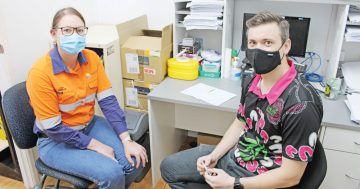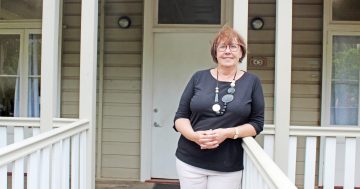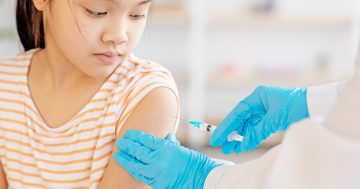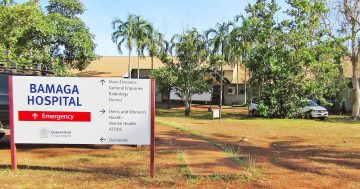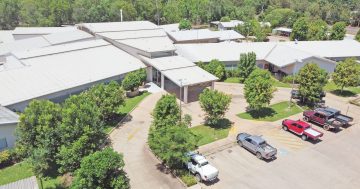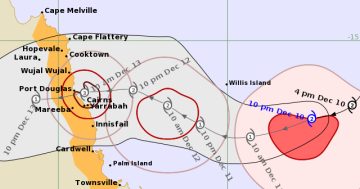
THE Torres and Cape Hospital and Health Service is expecting record amounts of active COVID-19 cases in the coming weeks but believes the peak will arrive sooner than first predicted.
On Friday, there were 580 active cases in the region, with the majority of them in the western part of Cape York.
Torres and Cape Hospital and Health Service chief executive Bev Hamerton said locals had been doing the right thing to slow the spread and keep numbers manageable.
“We are pleased with how things have gone so far but we still don’t want things to get out of control,” she told Cape York Weekly.
“It steadied off for a while and then all of a sudden we went up 200 cases.
“That spike was most likely on the back of kids going back to school, which is something we predicted.”
Ms Hamerton said at the start of January that the health service was predicting a peak in late March, but she changed that to early March when asked last week.
“We were always a couple of weeks behind Cairns and they are just starting to have their peak so we think we’ll get ours in early March and then see numbers start to go down,” she said.
Ms Hamerton said she was most pleased by the maturity of the local leaders who had been helping deal with the pandemic on the ground.
“Every Friday we have a phone meeting with mayors and CEOs from the councils and a few weeks ago it was 90 minutes long and this morning it was 20 minutes,” the chief executive said.
“The community are gaining more and more confidence that they can manage this.”
Of the 580 cases in the region, almost a third were in the Weipa district.
Weipa itself had 94 active cases, Napranum had 73 and Mapoon had 15, although that number is expected to rise when the latest figures are released.
Pormpuraaw, which is a community with one of the highest vaccination rates, had 70 active cases on Friday.
To date, accounting for those who have been discharged from quarantine, the TCHHS has recorded 2727 cases of COVID-19.
“With widespread transmission of COVID-19 evident throughout our region, vaccination remains our best protection against the virus,” Ms Hamerton said.
“While being vaccinated will not prevent you getting COVID-19, vaccination has been proven to reduce the severity of the illness and help keep you out of hospital and, especially, out of intensive care.
“We are currently delivering booster vaccination doses across the region, along with vaccinations for children aged 5–11, as well as first and second doses for people who have not yet had them.
“Everyone aged 16 years and older is eligible for the booster vaccination if it has been three months or more since the completion of their primary course of vaccine – both doses.
“To date, we have delivered 6078 booster vaccinations across the region, which represents about 63 per cent of those aged 16 years and over that are eligible.
“If you are due for your booster, please come and get it for that added layer of protection.
“Evidence from New South Wales indicates that the parts of Sydney hit hardest by the Omicron wave also had the lowest booster vaccine update.
“New data also shows you are 20 times less likely to die of COVID if you have had your booster.
“We are also delivering vaccinations for children aged 5-11 years and, to date, have delivered 1525 vaccinations to this age group, which represents more than 45 per cent of eligible children.
“But we would like to see this percentage increase, so I urge parents to please bring their children in for the vaccination.
“The Pfizer COVID-19 vaccine is safe and has been fully approved and recommended for people aged 5 years and older.
“We’ve seen in other areas of Australia and around the world that children are more susceptible to the emerging strains of COVID.
“Like adults, some children who get COVID-19 will be asymptomatic.
“However, there are children who have become seriously ill and needed hospitalisation after contracting COVID-19.
“For children, a significant risk of contracting COVID-19 is a long-term inflammatory syndrome, which affects about one in every 3000 children, and can cause illnesses such as fever, rash, and intestinal, heart, and neurological issues long after their recovery from COVID-19.”

